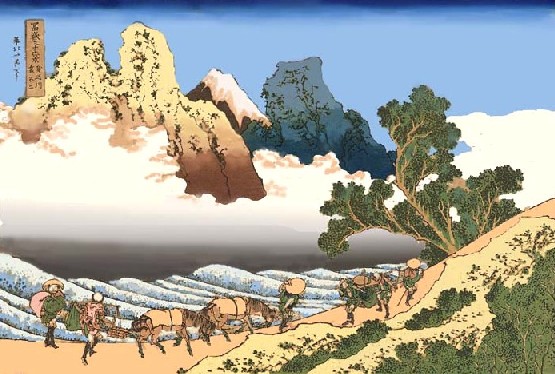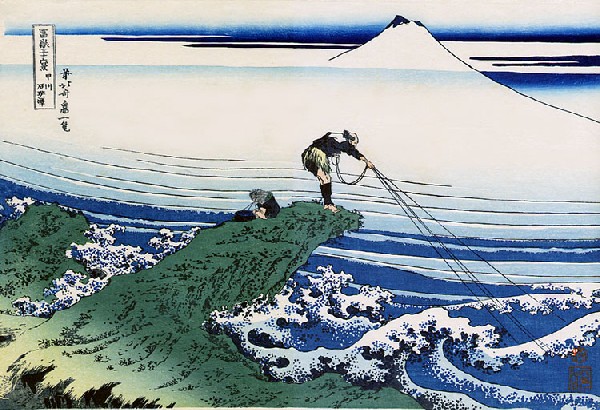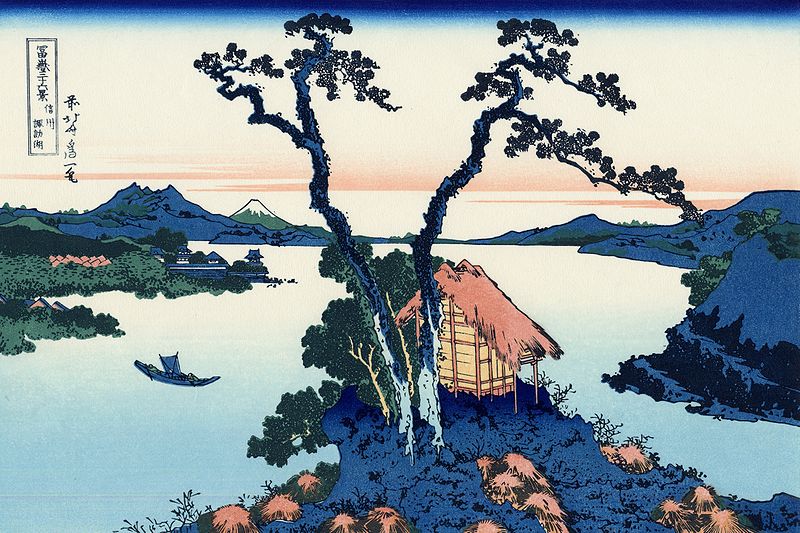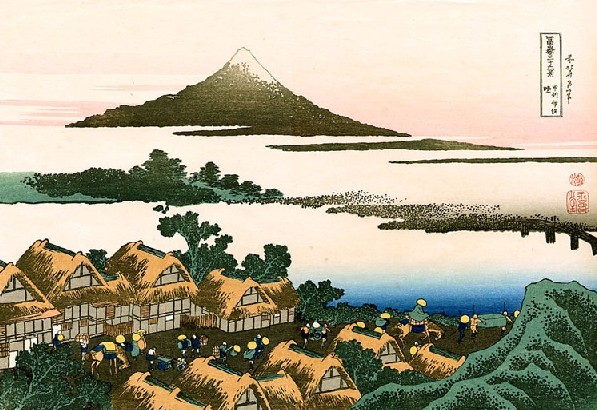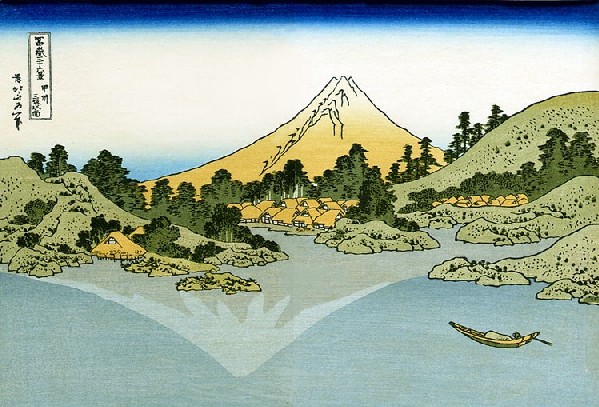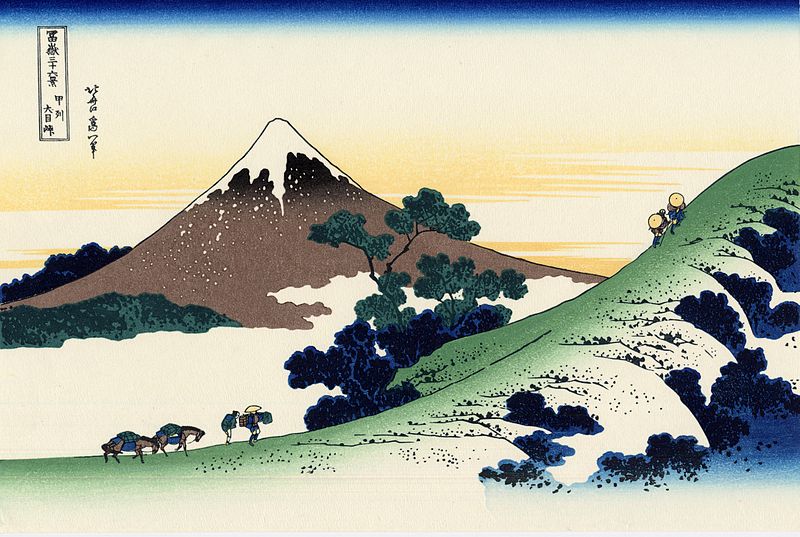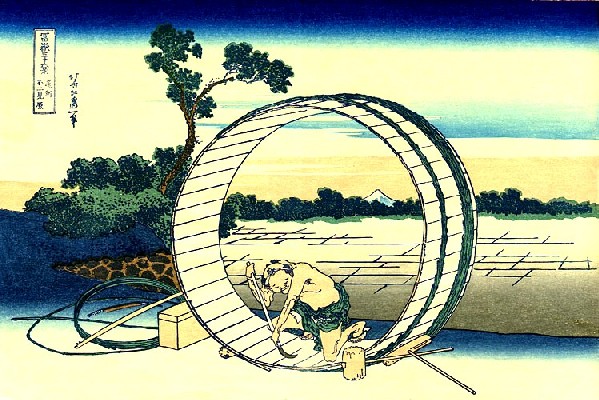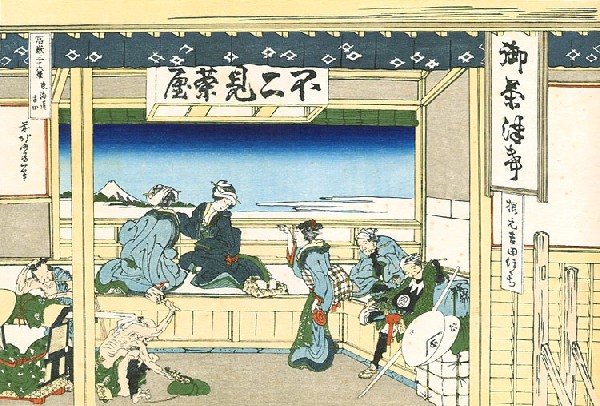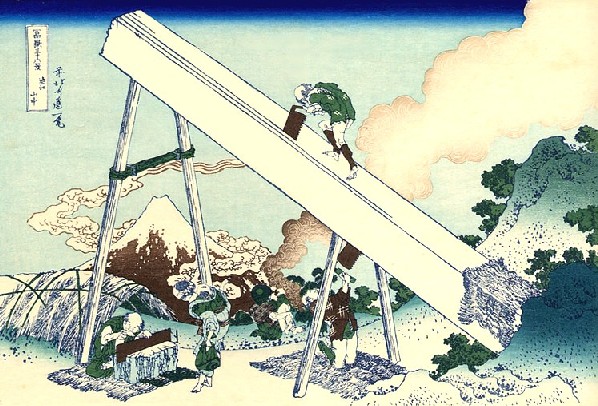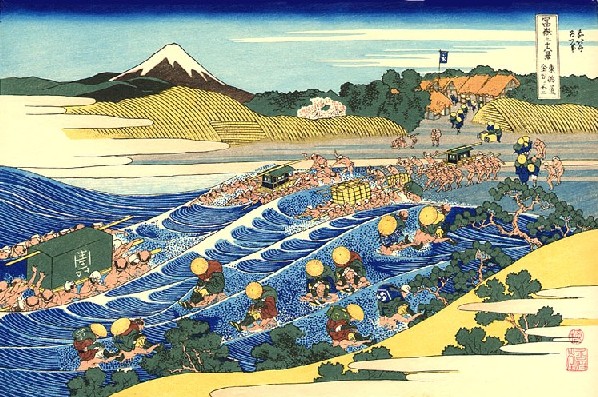‘The back of Fuji from the Minobu River’ print, painted by Katsushika Hokusai
46.The back of Fuji from the Minobu The road that the travelers and horses are walking run down to the Kuonji temple, the head temple of Nichiren sect. Some of them are likely to be on their way to the temple. They are surrounded by rugged rocky mountains, and see the overlapping waves of the river on the […]
‘The back of Fuji from the Minobu River’ print, painted by Katsushika Hokusai Read More »

